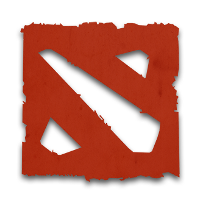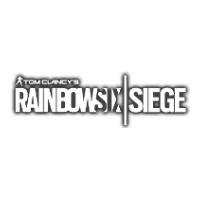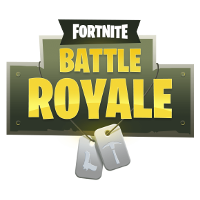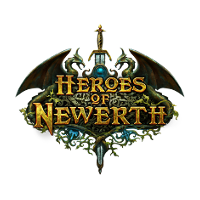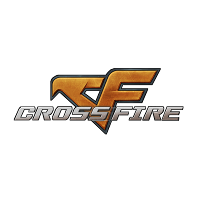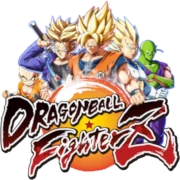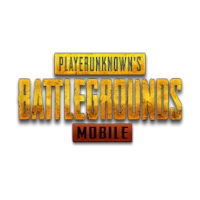Counter Strike: Global Offensive (CS:GO) Betting Sites 2026
Want to bet real money on Counter Strike: Global Offensive (CS:GO)? ➤ See available odds ✚ Bookmakers reviews. Get your eSport bonus now ✅
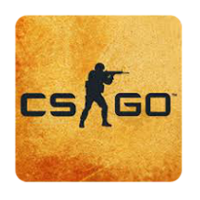
| Publisher | Valve |
|---|---|
| Genre | First person shooter (FPS) |
| Format | 5v5 |
As for CS:GO esports, it’s broken down into two 15-round halves. With each team playing as the Terrorist side before swapping to Counter-Terrorist, or vice versa. Games are won when the T side plants the bomb or kills the CT side. While the CTs win by defusing the bomb or killing the T side. CS:GO is played over a number of maps, with a small selection generally being used in esports. CSGO is similar to games like Valorant and Rainbow Six Siege in terms of round/series format.
Counter Strike: Global Offensive (CS:GO) Betting Sites
Bet at Counter Strike: Global Offensive (CS:GO) tournaments, events and matches at the eSports bookmakers below!
Counter Strike: Global Offensive (CS:GO) Live Streams
Stream Counter Strike: Global Offensive (CS:GO) matches & tournaments live!
How to bet on Counter Strike: Global Offensive (CS:GO)?
Tips, tricks and tools for betting on Counter Strike: Global Offensive (CS:GO)
What is CS:GO?
Counter-Strike: Global Offensive (CSGO) is the most recent version of the legendary Counter-Striker franchise. It has been a staple of PC gaming and one of the Godfathers of FPS Esports. Released back in 2012, CSGO is a tactical FPS, focusing on a round-to-round basis. Teams begin with a set amount of money and earn money by securing kills, bomb plants/defuses, or chaining wins together. Items saved from the previous round are brought over, including grenades, defuse kits, and armour. Each of the 10 players in a game has one life per round.
Each team will play 15 rounds of each of the two factions (Terrorist and Counter-Terrorist) before swapping to the other team. Games of CSGO are won when one side reaches the "magic" 16-round total. If the scores are tied at 15-15, tiebreakers are played until a winner is found. For public games, teams will vote on whether or not to head to a tiebreaker or if they should call a draw.
Individual rounds are won when either side wipes out the other or if a side archives its objective. For Terrorists, that would mean blowing up the bomb; for Counter-Terrorists, that’s defusing the bomb. While neither team has an advantage overall, certain maps do tend to favour each team's weapons or the style of play. So, it’s very possible to see a site lose 10-5 on Terrorists before coming back to win on the Counter-Terrorists side 11-4.
How is CS:GO Esports organized?
Unlike a lot of modern esports titles, CSGO is mostly run via 3rd-party event organizers. ESL, Blast Premier, IEM, and PGL are the four most notable (more on each later). Most tournaments in CSGO follow a similar format. With pre-event qualifiers before the main event. However, there have been two notable attempts at creating a franchised league format for CSGO. We’ll explain more later, but it’s certainly not something that’s gone to plan for everyone involved.
Outside of that, however, CSGO is one of the most active esports globally, with events on almost every week of the year. From S-tier Major events, to minor regional leagues. CSGO continues to be an amazing entry-level esports for organizations and players alike.
What are CSGO Majors?
There are Valve-sanctioned events in CSGO; though the host changes, you’ll spot them from the "Major" title they use. Usually, there are one to two Major events during the year, at the start and towards the end. The means to qualify are based on a number of factors. Team slots are given based on the player rosters, though ESL awards spots to the organization, which slightly alters how this works. The basic point is that winning another event earns you or your organization points; those points then define where you sit in the seeding for a Valve Major.
Franchised Leagues in CS:GO
The first was Flashpoint, which had 3 Seasons of action, with the first two offerings huge $1m prize pools before the 3rd season dropped to just $50k. Flashpoint has gone dark since mid-2021, with no word of a 4th season looking likely. Flashpoint gave fans an alternative to the ESL Pro League, though it ultimately appears to have been a short-lived failure.
The ESL Pro League is the most regular franchised league in CSGO. With thirteen of the sides qualifying via the "Permanent Partner Status", the remaining eleven are selected based on other factors: Six are taken from the ESL World Rankings, and the remaining five are taken from a qualification round.
The current ESL Partner teams are: Astralis, BIG, Complexity, Evil Geniuses, ENCE, FaZe Clan, Fnatic, Furia, G2 Esports, Mousesports, Natus Vincere, Ninjas in Pyjamas, Team Liquid, Team Vitality.
What are PGL, IEM, ESL, and Blast Premier?
These are the big four when it comes to CSGO events? Intel Extreme Masters (IEM) is probably the most recognizable of the four. IEM, ESL, and Blast are the most frequent of the four, with PGL tending to focus on smaller events or hosting the Valve Majors. Whereas the other three tend to host their own "S-Tier" events.
As mentioned, PGL is well known for its smaller-scale events, often filling in the A-Tier and B-Tier event categories. Though, Blast Premier and ESL are also frequently involved in this area. ESL in particular is very focused on the regional leagues. While these are small scales in the grand scheme of things, they help create an echosystem for players and organizations to climb up the esports ladder and into the top tier.
2023 is already looking to be a busy year, with six S-tier CSGO events already confirmed:
- IEM Katowice 2023 - Jan 31 - Feb 12, 2023
- ESL Pro League Season 17 - Mar 01 - Apr 02, 2023
- BLAST.tv Paris Major 2023 - May 08 - 21, 2023
- IEM Dallas 2023 - May 29 - Jun 04, 2023
- IEM Cologne 2023 - Jul 25 - Aug 06, 2023
- ESL Pro League Season 18 - Aug 15 - Sep 24, 2023
CS:GO Betting Tips
Play the game - The importance of this cannot be overstated. Placing bets requires an understanding of the context of the game. As CSGO is free to play, and can run on a variety of PC setups, it’s a great game to pick up and play.
Old Game, new reasons to play - While CSGO is an old title now, it’s still well supported and one of the most played games on Steam every day. With new "seasons" dropping all the time, there are always new reasons to drop in.
Bet without bias - As you play, you will learn about the game and the esports scene. It is not always the best choice to pick the team or player you like. Betting on a team because you support it isn't a good idea, even if you know more about them as a result. Don't let your heart guide your betting.
Easy to understand - CSGO is a fairly simple game to understand. The main things you need to know are the advantages and disadvantages each side has on each map. A team going 10-5 on Terrorists might look good, but if the map is Terrorists favoured that score might be too low. So it’s worth doing your research.
Start small, play smart - The best tip of all is to start small and play smart. Don’t go big on one "sure thing"; look at smaller options and work from there once you’ve learned the scene and have a better understanding of it. Then you can place larger stakes.
Pick a team/region - at the start of your adventure, focusing on one region or even one team can be a great start. There’s so much to know about CSGO that it can be overwhelming. If, however, you focus on a team/region, you can bet with confidence a lot sooner.
Join communities - One thing about CSGO is it has a large online community. Checking out Reddit or Twitter around events can give you some valuable information about tournaments without putting in hours of work yourself.
Have a Budget - Just as it is important to start small, it is also important to have a budget. Depending on how experienced you are, you might want to start out with $50 (or something close to that amount) and try not to place too many large bets at once when you are just starting out.
Know your history - it’s essential to look at a team's history before placing a bet. How good are they on a certain map as a Terrorist/Counter-Terrorist? Knowing this can give you the upper hand in going against the bookies.
7 Reasons to bet on CS:GO
Free-to-play - CSGO is F2P now, so you’ve got an excellent opportunity to play the game and learn the context around how you place bets on the market.
CSGO is tactical - What makes CSGO stand out was how tactical of a game it is. From round to round, the tactics of the game shift as teams lock horns. Sometimes this can be as simple as an AK-47 falling to the other side or a team winning an echo round. Regardless of what it is, CSGO has some amazing round-to-round tactical changes.
Momentum - This is a huge part of CSGO. An opening frag from the attacker can force open a bomb site and expose the defense. However, if the defense can open frag an attacker, then it might completely shift the entire round strategy of the attacking team.
Moments of magic - CSGO is full of amazing solo moments. From incendiary grenades blocking bombs to clutch AWP kills in the last seconds of rounds. CSGO has had some amazing moments over the years, many of which are even immortalized inside the maps.
Stable meta - While it might seem like a negative, CSGO patches are very few and far between. While this means the meta is stable, it allows teams to explore that meta for extended periods. Though so much of CSGO is about more than just what guns are OP or not, and much more is about utility metas and new tactics/how to counter them.
CSGO is a safe bet - one thing is for sure; CSGO isn’t going anywhere any time soon. And if it does, it’s likely just to be replaced with a new game in the series. While we have no real speculation, Valve’s Source 2 Engine is being used now (for Dota 2), so we’ll probably see it rolled into CSGO or part of a new CS game in the future.
Strong esports scene - We’ve mentioned it a few times, but it goes without saying from a betting point of view. CSGO has an incredible esports scene, and you can take advantage of that as you look to place bets on the scene.
Types of CS:GO Bets
Tournament/event winners – Choosing the outright winner of an event is what you're going to bet on here. It doesn't matter if it's a short weekend event or an entire ESL Pro League Season. You’ll need to bet on who will take the entire event and come out on top.
Match winner – As above, but for each match. In match winners, you have to predict the winner of each match or map. As a result, you may be able to place multiple bets within the same series.
Series winner - This is where you bet on the winner of a series or map. In most cases, you won't need to pick an exact score. Pick which side will win instead of picking which side will lose.
Most Kills on a team – This market looks at a player's highest total kills earnt. This will generally be the team's entry fragger, though AWPers can pick up a lot of kills if a series goes long. So it’s always worth taking that into account.
Rounds over/under - Games of CSGO will either go for between 16 or 30 rounds (if we ignore tiebreakers). So, over/under bets will see you place a bet if you think a game will go over/under a certain number of rounds.
Pistol round winner - The pistol round is the first round at the start of each half of the game. A popular market is to bet on the winner of these rounds.
Overtime/draw - If a game is expected to be close, you can bet on whether or not a series will go into a draw/tiebreaker scenario. There’s not a real way to know, of course; however, two equally matches sides on a map they’re both good at is normally a good sign.
Team to win X rounds - Another popular market is to bet on a team winning a certain number of rounds. This is usually 12 rounds and doesn’t require the team to actually win the game. You can also pair this with a tiebreaker to triple down on a bet.
No bet on Draw - An interesting market for CSGO is the no bet on a draw or No draw bet. Essentially, during the best-of-two series’, it’s possible for a match to end 1-1. In this case, you’ll get your bet invalidated and returned to you if neither side wins.
Final Thoughts
While it’s often up for debate, what game is the "best" esports. There’s something magical about a CSGO major. Every time one of them is in a Grand Final, it feels like it attracts players from all over the world to tune in. Also, CSGO is probably one of the most active esports there is, with events on all over the world almost every day.
The only downside is that CSGO has still not fully penetrated the East-Asian market. The game is undoubtedly largely focused everywhere in Russia and to the East. Though East-Asian sides do compete at the top events, it’s not common to see them claim Major CSGO titles just yet.


